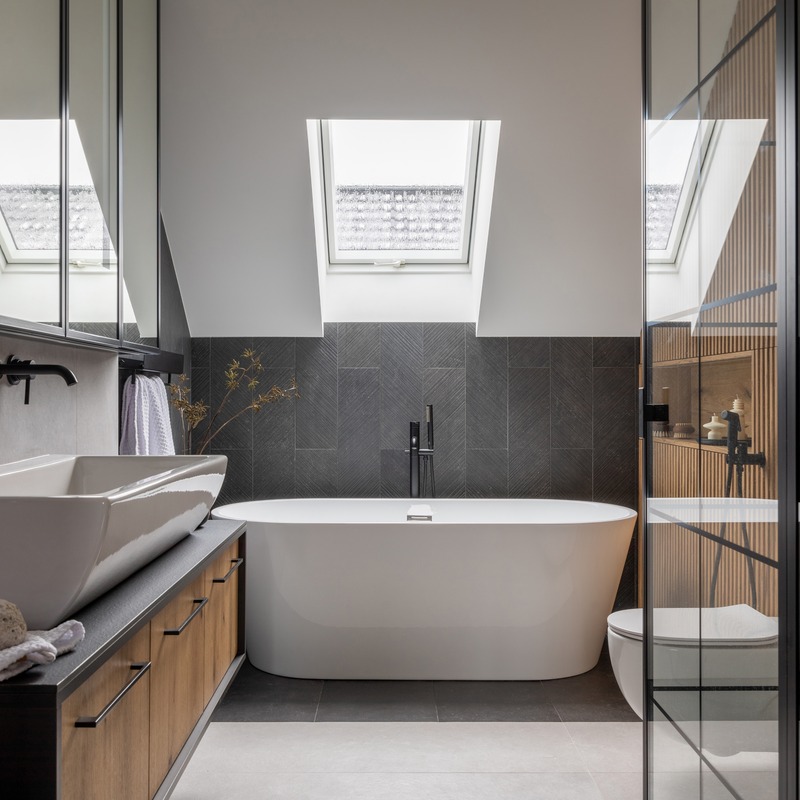The 8 questions you need to ask your contractor before you start, if you want to avoid becoming a story we tell our friends about.
When you take the time to ask the right questions you reduce the risk of a job going wrong, being left high and dry or worse with a massive bill to get a project fixed by a more reputable contractor.
All the businesses on Okanagan Contractors expect you to ask these questions to us.

1. What can I expect when I work with you?
Knowing what you can expect from your contractor. This will help clarify where you are in the process. Most projects need significant preparation, and in today’s hectic world, knowing exactly what everyone is working on and what comes next reduces stress and keeps things on track.
Every good contractor has a process, this is how we ensure we serve our clients to the best of our ability. The process may look different for everyone, and thats why you should ask what the process is. Make sure their process is a good fit for your expectations.
If a contractor is flying by the seat of their pants and you decide to work with them, thats a good way to ensure your projects has delays, unforeseen costs and you get shoved down the list of work that is probably going to pay out tomorrow.
2. Do you have insurance?
For most of our clients their home is the most valuable asset they own. Allowing a contractor to work in your home without 3rd party liability insurance is a terribly plan. One screw that creates a tiny pin hole in a water line, can result in tens of thousands of dollars in damages. And if the contractor is not adequately insured you may have no way to recover those losses. Make sure that their insurance covers everyone and everything they bring on site. This is why Okanagan Contractors includes insurance in our verification process. This does not substitute you asking for and getting a copy of your contractor’s liability insurance certificate.
Insurance can range from 100k all the up to millions, ensure that your contractor has enough insurance to cover any potential losses that could happen on your projects.
3. Workers Liability Insurance.
You can visit WCB’s website (we have a link on this site) and search your contractor to ensure they are in good standing. You can also request a letter from your contractor. liability is becoming a bigger and bigger issue. If a contractor falls down your stairs without proper coverage, they may try to sue you. Having WCB ensures that any workplace accident can be arbitrated and investigated by a governing body. This insurance also ensures that your contractor and their team are working in a safe manner and taking proper precautions. A note on this, is that business owners that do not have employees and are doing all the work themselves don’t actually require WCB, this is for sole proprietors. Make sure you have clarity on this. If they are bringing other trades onto the site, they will require WCB if that trade doesn’t have their own WCB.
https://www.worksafebc.com/en/insurance/why-clearance-letter/get-clearance-letter

4. Contracts
Contracts are the glue of the entire industry. We are called CONTRACTors. They are what keeps everything from falling apart and separates the tailgate contractors from the legitimate businesses. Never hand money over to a contractor without a signed contract explaining exactly what you can expect in return.
Make sure the contract protects you, if you have questions ask them. Just because some contractors act like it is the wild west, it doesn’t mean you have to put on a cowboy hat and join them.
5. Permits
Your contractor can only pull permits if they are registered to work in your service area. This ensures that they are operating above board.
City permits protect you. Pulling the proper permits protects the client – it ensures an impartial third party inspects all the work being done in your home. Don’t take your contractor’s word that you don’t need a permit, every district has a building department that wants to help you.
6. References?
Do your research, We have all sorts of ways to find out information about someone before we even meet them. Yes, creep on their Facebook, yes, search them on Google, yes, read their reviews, yes, ask them if you can speak with previous clients. If you are going to entrust money to someone you have no prior relationship with make sure you have vetted them. – Trust your gut, if you have an off feeling walk away, and work with someone you feel like you can trust. I can’t say this enough, do your research.

7. Communication
Every company has a different way they prefer to communicate, find out what that is. Text, phone, email, an app. Make sure you feel like you are able to get and give information in a way that is going to work for you. And in a way that there is a record and has some organization. Not all projects are simple.
8. Who is going to be in your home
Ask your contractor if they have used their sub-trades before. Do they have a subcontractor contract? Ask for a copy of that contract. Your general contractor should have very clear boundaries and expectations of their sub-trades.
Construction is an ever-changing landscape, with new challenges on every job. Make sure you have clarity, before you start working with them. There are many options out there, and not all of them are the same.
As a client your goal in this process is not to trust blindly, it is to protect you, your interests, and your home. If a contractor gives you grief for asking any of these questions this is a red flag. Don’t risk your home to save just a little money.
